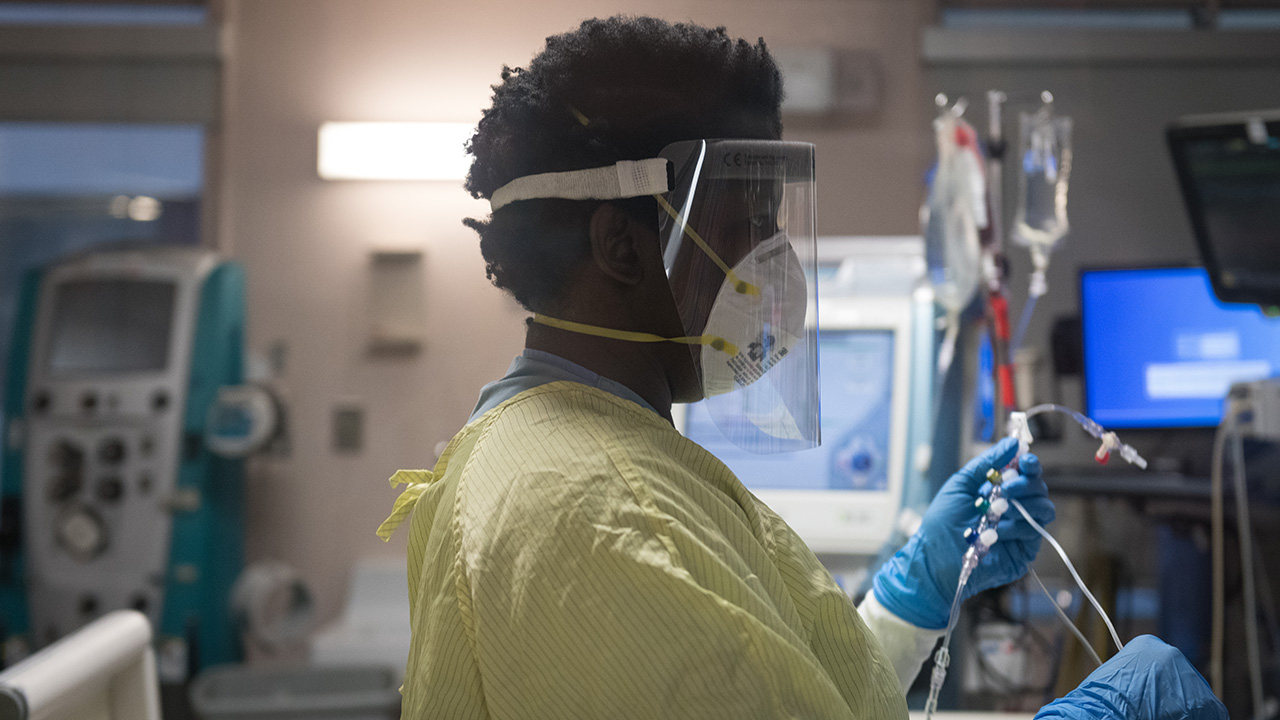Can intravenous vitamin C help critically ill COVID-19 patients? Sunnybrook's LOVIT trial aims to find out
A trial co-led by Sunnybrook is now enrolling septic COVID-19 patients to evaluate whether intravenous vitamin C could help improve their overall outcomes.
“Vitamin C doesn’t attack the virus itself, but it could form an important part of the supportive care we provide by helping with the body’s immune response,” says Dr. Neill Adhikari, a critical care physician at Sunnybrook Health Sciences Centre and co-principal investigator of the trial.
The LOVIT trial, which is examining whether high-dose intravenous vitamin C can lessen organ dysfunction in septic intensive care unit (ICU) patients, first began recruiting patients at 25 Canadian ICUs a year and a half ago, long before the emergence of COVID-19.
But when the World Health Organization (WHO) included vitamin C in its list of COVID-19 research priorities, Dr. Adhikari knew they could contribute to that research effort by making some minor modifications to the LOVIT trial.
“The study protocol didn’t specify that the sepsis could only be caused by bacteria, so it was relatively straightforward to expand the trial to patients with sepsis caused by a virus like COVID-19 as well,” says Dr. Adhikari.
The research group, which includes co-principal investigator Dr. François Lamontagne from Université de Sherbrooke, submitted a modification letter to the appropriate research ethics boards and Health Canada on March 15, receiving approval just three days later. One month later, 40 patients with confirmed or suspected COVID-19 have already been enrolled.
Additional funding to create a separate COVID-19 arm of the LOVIT trial was confirmed on April 16. That arm would include patients with COVID-19 who are hospitalized on a regular ward. Dr. Adhikari hopes to re-launch the trial with a larger pool of sites as part of REMAP-CAP, a global trial of multiple interventions for COVID-19 and for community-acquired pneumonia caused by other pathogens.
Why vitamin C?
Small doses of intravenous vitamin C are commonly given as a nutritional supplement to patients who are unable to eat. It can also be given in pill form to help promote wound healing.
“In sepsis, the theory is that high-dose intravenous vitamin C is an immunomodulator, acting as an antioxidant and a cofactor in the synthesis of noradrenaline, cortisol, and vasopressin, hormones that are crucial to maintain adequate vascular tone for organ perfusion,” says Dr. Adhikari.
These actions help the body react in a less dysfunctional way to an infection. Notably, humans cannot synthesize vitamin C, and levels in the blood are very low in patients with sepsis. Current treatment options for sepsis are focused on antimicrobials and supportive care, such as intravenous fluids, vasopressors, mechanical ventilation and renal replacement therapy.
Dr. Adhikari says interest in intravenous vitamin C took off about three years ago, when a non-randomized American study found that a combination of vitamin C, steroids and thiamine, also known as Vitamin B1, led to a dramatic drop in mortality among septic ICU patients.
Using larger doses of vitamin C, the LOVIT trial aims to determine whether vitamin C alone can improve patient outcomes.
Results
While the original LOVIT trial will continue enrolling patients for another year or two, the COVID-19 arm of the trial is more flexible.
Unlike traditional trials, information from patients already participating in the study will also be used to help guide the allocation of new patients joining the study.
“The trial is designed in a way that if patients in the vitamin C arm are doing better than those not receiving vitamin C, then new patients entering the trial will be more likely to be randomized to the vitamin C arm. And, outcomes data will be examined frequently. If we find convincing and definitive evidence that vitamin C is helpful, harmful, or useless, then the trial will promptly stop so that these results can be disseminated,” says Dr. Adhikari.
Study findings could also be applied to future respiratory illness pandemics, he adds.
“Of course, we hope the pandemic ends sooner rather than later. But if it continues along for the next year, we’ll be well-positioned to share our findings to help guide care for those patients.”
Media contact:
Sybil Millar, Communications Advisor
sybil.millar@sunnybrook.ca



